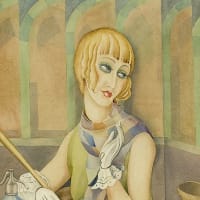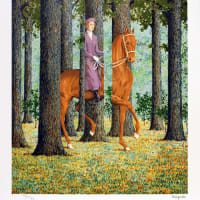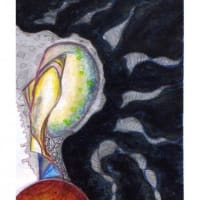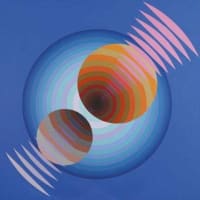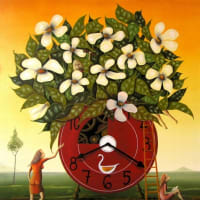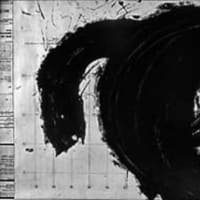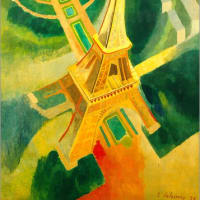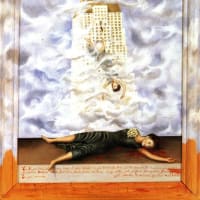Art and antiart are imaginary solutions; surrealism lies elsewhere. We who have taken up the surrealist cause do not delude ourselves that surrealism has yet advanced much beyond a certain preliminary stage. Its incontestable merit is that from the very beginning, with everyone else preferring to look the other way, surrealism has focused its attention on the extreme precariousness of the human condition and moreover has devoted itself without restraint, and with all the clarity of despair, to confronting this precariousness head-on: that is, to the revolutionary task of changing life. I hope no one seriously expects surrealism to have any positive meaning except to those who are aware that the existing order cries out to be negated and transformed. That there is no solution to the decisive problems of human existence is,for surrealism, a first principle that is beyond argument. Nothing would be more difficult than reconciling surrealism to bourgeois culture. Immobilized beneath a seemingly inflexible net of counterfeit hopes and fears - hopeless and fearless at the same time before a destiny that could hardly be more ruinous to the free development of the human personality - men and women go on fabricating illusory foresights and pitiful afterthoughts as if nothing more important were at stake than the price of cigarettes. But in this grim charade, fortunately, nothing is foolproof. A split second is sufficient to say no, to let the lions escape, to open the wounds of reality, to stop the assembly line, to set out for the unknown. Accidents do happen. With surrealism the phoenix of anticipation emerges unfailingly from the ashes of everyday distraction, rising defiantly on wings of vitriol and amber, putting to shame the musty compromises that provide the glue with which the existing agony adheres to any passing thoughts.
Dispelling the mirage of futility, traversing the mirror of fatality, surrealism is resolved to stop at nothing..
It cannot be emphasized too strongly: Surrealism, a unitary project of total revolution, is above all a method of knowledge and a way of life; it is lived far more than it is written, or written about, or drawn. Surrealism is the most exhilarating adventure of the mind, an unparalleled means of pursuing the fervent quest for freedom and true life beyond the veil of ideological appearances. Only the social revolution - the leap, in the celebrated expression of Marx and Engels, 'from the realm of necessity to the realm of freedom' - will enable the true life of poetry and mad love to cast aside, definitively, the fetters of degradation and dishonour and to flourish with unrestrained splendour. Vainly will one search in surrealism for a motive inconsistent with this fundamental aspiration.
'Human emancipation', wrote André Breton in Nadja, 'remains the only cause worth serving'. For the surrealists, surrealism remains precisely the best means of serving that cause.
From its inception as an organised movement) in 1924, surrealism has endured the misrepresentation that is the lot of every revolutionary tendency. Professors of comparative literature have been eager to seal it up in scholastic formaldehyde; to 'classify' it, once and for all, between symbolism and existentialism, as a 'mode' in modern French literature. Historians and critics of art undertake a similar interment in their own sphere. Writers for the Sunday supplements continue to depict surrealism as gimmickry, as a sensational hoax, as a frivolous intellectual diversion.
Surrealism is not a peculiarly 'French' movement; it is not essentially a 'style' of painting or poetry; it is not substantially the same as the Dada movement that preceded it; it is neither a historically delimited movement and has already run its course; its function was not merely to introduce 'fantasy' into art and literature; it is not a form of 'escape' into dreams; it has nothing to do with the publicitary antics of that venal and reactionary charlatan Salvador Dali. And so on.
Disseminated by television, newspapers and textbooks, these misconceptions may be regarded as the 'vulgar' reinforcement of the anti-realist confusion which would seem to constitute, today, a component of all repressive ideology. When most critics pretend to see in surrealism only a peripheral, relatively unimportant, certainly 'refuted' and 'obsolete' current of ideas - this must be regarded as a mechanism of defense and a symptom of a morbid intellectual process calculated to maintain a delusion. The subversive essence of these ideas requires that the hucksters of bourgeois Ideology distort, slander, obfuscate and otherwise attempt to do away with them as efficiently as possible. When the American poet Ted Joans wrote, in a letter to
Breton, that surrealism was the weapon he had chosen to defend himself against the 'abject vicissitudes' of a racist society, he expressed with admirable candour an elementary truth that has none the less escaped a long succession of dabblers, dilettantes, professional critics and highly esteemed scholars.
It should yet be understood that surrealism is a far-ranging and constantly renewable current of thought and action which cannot be assigned rigid historical limits, much less confined to the destiny of a single individual.
Octavio Paz has written, 'It is impossible to speak of André Breton in a language that is not that of passion.' This testifies to the great force of Breton's ideas and to their undiminished capacity for provoking heated controversy. As for dolts who persist in designating Breton the 'pope' of surrealism, who gabble about his alleged 'dictatorial' personality, and who are obsessed with what they call excommunications' from surrealism, let us leave these fools to their folly. Just as he was viewed as the very incarnation of Lucifer by those infected with conformism, André Breton had an inestimable moral authority in the eyes of everyone guided primarily by revolt. Earned by the zeal and integrity with which throughout his life he defended the triple cause of poetry, love and freedom, this moral authority was freely acknowledged by the immense number.
Associating such an exemplary quality of the spirit with the petty etiquette of dictators is so false, so hypocritical, that only self-seeking apostates, and their accomplices the professional literary critics, could be guilty of attempting it.
*taken from Franklin Rosemont's Introduction to André Breton's volume of selected writings entitled:What is Surrealism?










